Tsisana Gavasheli, Ivane Javakhishvili Tbilisi State University, Tbilisi, Georgia
Two alternative NMR methods under the influence of an additional magnetic video-pulse for the measuring of the pinning (fixation) force of domain walls in one-dimensional nanostructures, such as cobalt nanowires, were proposed and investigated. All necessary detailed information [....] » Read More

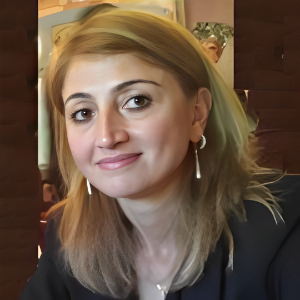
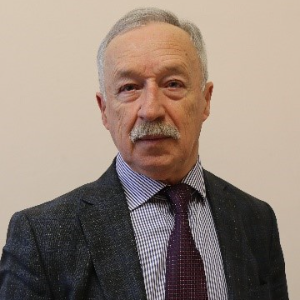

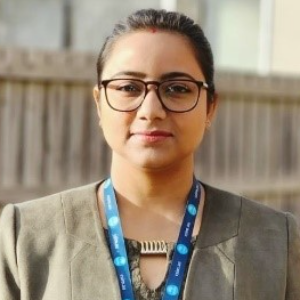

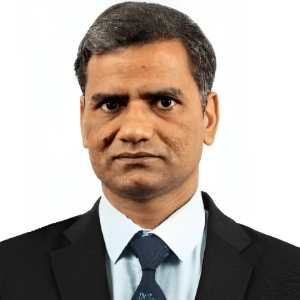
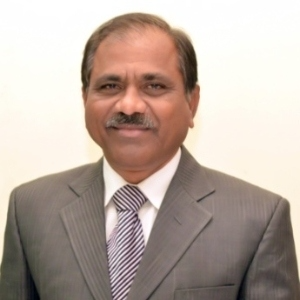

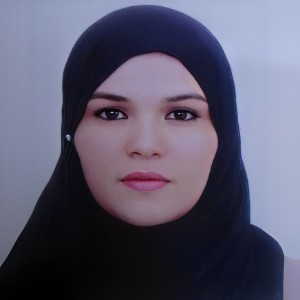
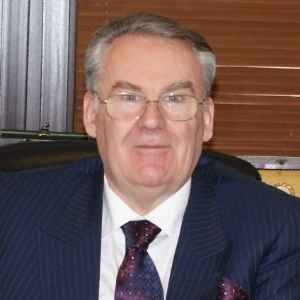
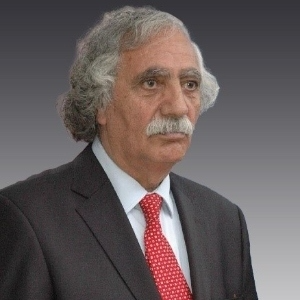


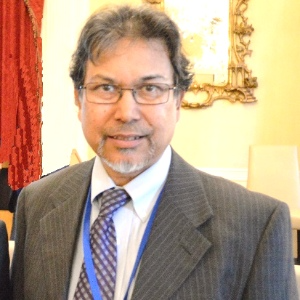
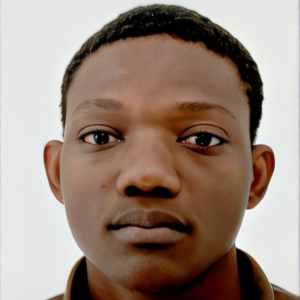
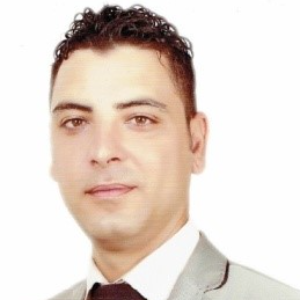
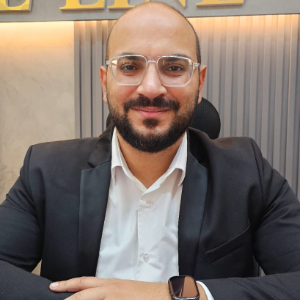

Title : The failure of both einsteins space-time theory and his equivalence principle and their resolution by the uniform scaling method
Robert Buenker, University of Wuppertal, Germany
The Lorentz transformation (LT) makes three predictions which are not consistent with one another: Lorentz-FitzGerald length contraction (FLC), time dilation (TD) and light-speed equality for observers in relative motion to one another. The LT also stands in violation of the Law [....] » Read More
Title : Porphyrin layers at metal-electrolyte interfaces monitored by EC-STM and CV
Marek Nowicki, University of Wroclaw, Poland
Porphyrin derivatives play a crutial role in biochemical processes like chlorophyll in the photosynthesis of plants, heme of red blood cells in the transport and storage of oxygen, and vitamin B-12 in the metabolism of creatures. Porphyrin derivatives are materials for electrocat [....] » Read More
Title : Color control of electrochromes by structural modification
Will Skene, Montreal University, Canada
Materials that can charge their color on-demand have been used in a wide range of applications. While most uses rely on the acuity of the materials in the visible region, the invisible changes occurring in the NIR offer environmental benefits. This is the case when the color chan [....] » Read More
Title : Broadband sound attenuation of shape memory polymer with triangular-honeycomb unit cell metamaterial structural design
Musaab Ejaz, Universiti Teknologi PETRONAS (UTP), Malaysia
Periodic lattice structures using metamaterial design have gained significant research interest recently for elastic and acoustic wave attenuation applications. This study incorporates a triangular reentrant honeycomb unit cell design combining Bragg scattering and local resonanc [....] » Read More
Title : Development of panchromatic push-pull dyes for dye-sensitized solar cells using computational and experimental approach
Liezel L Estrella Pajulas, Silliman University, Philippines
The development of highly efficient and economically favorable photovoltaic (PV) devices is immensely needed to compete with the existing non-renewable energy sources which are detrimental to our environment. Emerging solar cells, such as dye-sensitized solar cells (DSSC), are pr [....] » Read More
Title : Development of a digital engineering tool for estimating the impact of micro-defects on the mechanical response of 3D-printed filaments
Gabriel Beltran, Aragon Institute of Technology, Spain
In recent years, the construction sector has been developing efficient materials and technologies to support the real implementation of nearly zero-energy/emission and plus-energy buildings with high indoor environment quality. This last aspect is particularly important on health [....] » Read More
Title : Nitrogen-doped carbon/titan/carbon/aluminium/carbon/silicon thin films: Synthesis by TVA technology and characterization
Victor Ciupina, Ovidius University of Constanta, Romania
The goal was to create varied types of nanostructurated thin films using four materials of interest: graphite, titanium, silicon, and aluminum, with the inclusion of nitrogen, on the Si substrate, by Thermionic Vacuum Arc (TVA) technology. The thickness of the structu [....] » Read More
Title : Structuring of water clusters under the solar influence and their copying by bulk water. Influence of the sun on the night side of the earth
Igor V Shevchenko, M.P. Semenenko Institute of Geochemistry, Mineralogy and Ore Formation, Ukraine
Even 0.02% water in acetonitrile can form clusters, the size and chemical reactivity of which can change under the influence of the Sun in a very wide range. Bulk water added to such acetonitrile can copy and reproduce these original clusters and acquire different hydrolytic acti [....] » Read More
Title : 44 years experience with fibre reinforces polyurethane railway sleepers
Gunther Koller, koocoo technology & consulting GmbH, Austria
In the 1970ties FFU – fibre reinforces foamed urethan - was developed by Japanese Railways in cooperation with Sekisui Chemical Co. Ltd. Here you will get information about the production process, the summery of many material performance tests done by technical Universities [....] » Read More
Title : Effect of curvature on the dynamic behavior of carbon nanotube reinforced FGM shells
Zakia Hammou, University of Science and Technology of Oran, Algeria
In the present paper an analytical model was developed to study the non?linear vibrations of Functionally Graded Carbon Nanotube (FG-CNT) reinforced doubly-curved shallow shells using the Multiple Scales Method (MSM). The nonlinear partial differential equations of motion are bas [....] » Read More
Title : Tailoring subwavelength scale electromagnetic field patterns with the help of nanoparticles
Michael Tribelsky, Lomonosov Moscow State University, Russian Federation
Resonant light scattering by nanoparticles provides a unique opportunity to concentrate a high-amplitude electromagnetic field in a subwavelength area of space as well as to tailor and control its pattern. In addition to purely academic interest, this is extremely important for n [....] » Read More
Title : Law of distribution of quantities of shells on Togolese Littoral
Amey Kossi Bollanigni, University of Lome / FORMATEC Institute, Togo
This study aims at analyzing the repartition of the quantities of shells of sand sediments of Togolese littoral, and at determining the law underlying their longitudinal and transversal distributions. Samples (210), collected all along Togolese littoral starting from Togo-Ghana b [....] » Read More
Title : Studies on multifunctional nanostructured materials
Sujit Kumar Bandyopdhyay, Meghnad Saha Institute of Technology, India
Multifunctional materials are of today’s quest. Miniaturization, i.e. development of these materials in the form of nanomaterials is of primary need considering their application in devices. Moreover, if these are obtained in nanostructured form, they can bring wonders. [....] » Read More
Title : Shape memory effect and diffusionless phase transformation in shape memory alloys
Osman Adiguzel, Firat University, Turkey
Shape memory alloys take place in a class of adaptive structural materials called smart materials by exhibiting a peculiar property called shape memory effect and superelasticity with the recoverability of two shapes at different conditions. Shape memory effect is initiated [....] » Read More
Title : Half-charring of dolomite mineral for applications in the passive treatment of mining effluents
Iuliana Laura Calugaru, Industrial Waste Technology Center, Canada
The contact between waters and the components of a mine site like open-pit walls, waste rock piles, tailings, access roads, etc., engender effluents contaminated through minerals oxidative dissolution. According to their pH, mine effluents are mainly classified in acidic (acid mi [....] » Read More
Title : Multiscale modeling of advanced heterogeneous materials
Valeriy A Buryachenko, Micromechanics & Composites LLC, United States
Unlike many other fields in material science, the evolution of composites and nanocomposites to their anticipated level of importance in general significantly depends on the contributions from modeling and simulation. The most popular methods of analytical micromechanics are base [....] » Read More
Title : Sustainable building material made from bulrush with numerous unique selling points
Martin Krus , Fraunhofer Institute for Building Physics, Germany
Due to its special structural properties, the bulrush plant (Typha angustifolia) enables the production of building materials that offer a combination of insulation and load-bearing effect that is unique on the market. The suitability of the Typha leaf mass is determined by the s [....] » Read More
Title : The art and science of Metal-Organic Frameworks (MOFs): A journey from conventional to contemporary techniques
Hassan Nawaz, University of Pittsburgh, United States
Metal-Organic Frameworks (MOFs) have been captivated research for over three decades due to their unique structure and diverse applications. These fascinating materials boast remarkable porosity and well-defined morphological characteristics precisely controlled through a diffe [....] » Read More
Title : Adverse events following transvaginal polypropylene mesh implantation to treat pelvic floor disorders: An explanatory study of explanted devices
Robert Guidoin, Laval University, Canada
Transvaginal Transvaginal polypropylene meshes used to treat pelvic floor disorders have been a significant concern in recent years due to adverse events. There is still considerable uncertainty about the causes of these complications. We aim to identify histological patterns tha [....] » Read More
Title : Synthesis and characterization of modified mineral-biochar composite and its application for removing perfluorooctanoic acid from water
Raj Mukhopadhyay, Carnegie Mellon University, United States
Per-and polyfluoroalkyl substances (PFAS) are a large group of anthropogenic compounds known as ‘forever chemicals’ due to their extremely persistent nature which makes them difficult to remove from the environment. Perfluorooctanoic acid (PFOA), one of the most wel [....] » Read More
Title : The impact of short and long term ageing in glycol water mixture on mechanical behavior of polyamide 6/glass fibers materials and recovery of properties after desorption process
Imen Ksouri, University of Sfax, Tunisia
The current paper aims to study the behavior of Polyamide 6 (PA6) and Polyamide 6 reinforced with 30% of short glass fibers (PA6GF30) under glycol water (GW) mixture (20:80) used for cars as coolant fluid at 50°C and 90°C for up to 80 days. First of all, the reversibility [....] » Read More